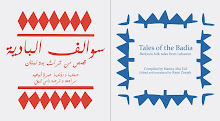رامي زريق
تشهد بعض المناطق في جنوب لبنان نهضة عمرانية واسعة، لا تهدف لإعادة إعمار منازل وقرى دمّرها العدو، بل لجرف الهضاب والبراري وتحويلها إلى مدرّجات مصطنعة هي أقرب إلى أبراج بابل مما هي لحدائقها المعلقة. والهدف من هذا السّلخ الوحشي للغطاء النباتي الأصلي هو إنشاء مزارع واسعة وحديثة. تدعو هذه التحولات إلى طرح أسئلة عديدة، منها ما يتعلق بالتناقض الفاضح بين ما نسمعه ونقرأه يومياً في رثاء القطاع الزراعي وعدم جدوى الاستثمار فيه، وبين ملايين الدولارات المدفونة في آلاف الدونمات المستصلحة حديثاً التي تملكها حفنة من المستثمرين المدنيّين. تكسو هذه الدونمات شتول الأشجار المثمرة وأنابيب الري وتشقّها طرق معبدة وترويها آبار عميقة تمثّل جميعها استثمارات ضخمة قد لا يبرّرها المردود الزراعي، نظراً إلى أن معظم هذه الأشجار لن يدخل في مرحلة الإنتاج قبل سنوات. في هذا السياق، لا بد من الالتفات إلى أن هذه التحولات تبشرنا بانتهاء النمط الغذائي التقليدي. فهذه المزارع التي تنتج أصنافاً معدة للتصدير أو للاستهلاك المرفّه، قد احتلت الأراضي التي كانت تزرع بالعدس والقمح والحمص والتي كانت ترعاها قطعان الماعز ويحصل منها أهل القرى على السليقة، أي النباتات البرية، التي تمثّل جزءاً أساسياً من الغذاء المحلي السليم والمتنوع. ومع هذه التغيرات الغذائية والاستثمارات والعمران الزراعي، تكون أريافنا قد أصبحت امتداداً للمدينة، يتحكّم بها المستثمر الرأسمالي وتسكنها عائلات تنتظر في كل آخر شهر التحويل المالي من أفريقيا أو الخليج لشراء ما يلزمها من غذاء مستورد. في الواقع، فإن هذه التحولات لا تنذر باختفاء القطاع الاقتصادي المعروف باسم «الزراعة»، بل باختفاء فئة اجتماعية بكاملها يطلق عليها اسم «الفلاحين».









+081.jpg)


